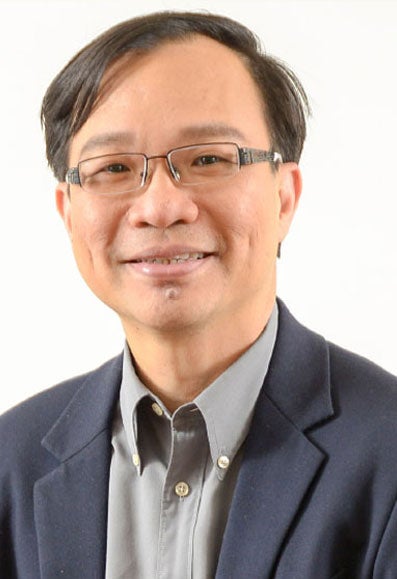

Assoc Professor Tin Wee Tan
Faculty & Department
Joint Appointments
Della Suantio Lee Professorship in Mental Health and Digital Science, Mind Science Centre, Psychological Medicine, Medicine
Resident Fellow, Teaching, Residential College 4
Education
Doctor of Philosophy, University of Edinburgh, United Kingdom
MSc in Applied Molecular Biology and Biotechnology, University College London, United Kingdom
Bachelor of Arts Hons Class 2A, University of Cambridge, United Kingdom
Contact Information
I have currently several projects under several grants
1. Image processing for brain connectomics using synchrotron imaging of human brains under the SYNAPSE 2.0 framework (synapse-sg.org)
2. Machine Learning and AI for enhancing diagnosis and interventions in Mild Cognitive Impairment and Dementia with the Mind Science Centre NUS and with Dept of Psychological Medicine
3. Designing AI Accelerators for Synthetic Biology Pathways in the National Centre for Engineering Biology (NCEB)
4. Developing AI models for biomedical imaging under the AI for Digital Pathology (AIDP) grant from A*STAR IAF-PP
Unfunded projects open for discussion include
1. Developing the case for Caregiving as a new discipline
2. Developing the case for a National BioDefence Agency
3. Grand Challenges in Bioinformatics
4. Developing the case for Systems Biology
Over the past three and a half decades I have championed the following:
1. Bioinformatics – today, bioinformatics is pervasive. The Bioinformatics Centre which I led in the 1990s, has now evolved into the Bioinformatics Institute in A*STAR. Bioinformatics has expanded throughout Asia based on the Asia Pacific Bioinformatics Network and its flagship conference International Conference on Bioinformatics (InCoB). Bioinformatics is incorporated in to the medical curriculum as a Dept of Biomedical Informatics. Bioinformatics and High Performance Computing features heavily in the MSc in Precision Health and Medicine which I am currently co-director. As one of the earliest researchers in Machine Learning, this field has exploded with the advent of the ChatGPT phenomenon and now AI is pervasive. For this effort, I was conferred the Visionary Leadership Award by the APBioNet President, during the first even integrated Asia and Pacific Joint Bioinformatics Conference in Okinawa 2024.
2. Internet – internet technologies and advanced networking. Today, the internet is pervasive and forms the basis of how Big Data evolved, which when combined with GPUs big iron, has led to the invention of Large Language Models (LLM) and generative AI. For the pioneering efforts in the Internet, including the Multilingual Domain Name system which is today globally deployed, and operating Singapore’s first research Internet, called Technet, which evolved into the NASDAQ-listed Pacific Internet, pioneering Tamil Internet among other things, I was inducted into the Inaugural Internet Hall of Fame in 2012 together with the founding fathers of the Internet, Vint Cerf and Bob Kahn, and the founder of the World Wide Web, Tim Berners-Lee. I continued to work with colleagues in the A*STAR Computational Resource Centre (ACRC) on advanced networking and pioneered global InfiniBand and 100G advanced networks interconnecting networks in a global ring (called InfiniCortex by my colleague Marek Michalewicz), and we won five awards for this effort.
3. High Performance Computing (HPC) and Petascale Supercomputing – after the National Supercomputing Research Centre was shuttered in 1999, I was tasked in 2010 to revive this effort to keep pace with HPC after the Roadrunner supercomputer reached petascale in 2008. It took us till 2014 to secure $98M to build the National Supercomputing Centre (NSCC) launching Singapore’s first petascale supercomputer ASPIRE1. From 2019 to 2024, we built ASPIRE 2A and ASPIRE 2A+ with another $182M from NSCC 2.0 grant, and finally through a $267M grant to support NSCC 2.5 secured just before I handed reins to my successor, we have embarked on building ASPIRE 2B. Meanwhile, we set up an Nvidia GPU A100 system in ASPIRE 1+ and ASPIRE 2A+ which was several racks of Nvidia DGX H100s, as well as a supercomputer in NUHS to support PRESCIENCE, which resulted in successful services such as Russel-GPT by Prof Ngiam Kee Yuan, and Smile-AI in Dentistry among others. With SingHealth, we funded the CHROMA supercomputer for supporting biomedical and clinical research. We built green tropical sustainable data centres, including one without any air-conditioning system, and operating them with cost savings and energy and water efficiency. For this, we won at least three awards and our supercomputing data centres achieved BCA Platinum Green award multiple times.
My Mentoring Style
How would you describe your mentoring style in terms of freedom given to your students?

Selecting Research Topics?
How do you guide your PhD students in selecting research topics?

Setbacks / Challenges
How do you handle setbacks or challenges faced by your PhD students?

Feedback
How do you give feedback on your students’ thesis drafts and progress?

Consultation Frequency
How often do you typically meet your PhD students one-on-one for consultation?

Research Group Meetings
How often do you typically hold lab meetings where your PhD students present their research work to the class?


